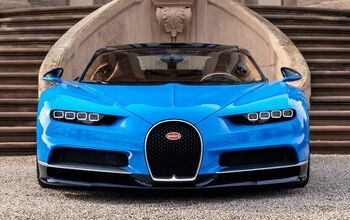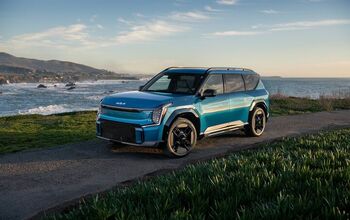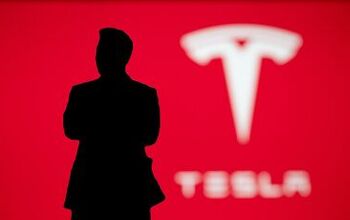Fuel Economy Figures Released for Hyundai's Littlest Crossover

Hyundai’s smallest utility vehicle arrives as the automaker tries to put a troubling year behind it. Sales fell significantly in both the U.S. and Canada in 2017, the first annual drop since the recession. The blame for the 13.4 percent U.S. drop and 6.1 percent Canadian decline lies in our growing aversion to small, fuel-efficient cars, of which Hyundai has many, and our insatiable lust for large utility vehicles, of which Hyundai does not have enough.
There’s nothing large about the Hyundai Kona, but it’s still an important player in the raft of new or revamped crossovers bound for Hyundai’s stable. And, just like in the small car segment it’s slowly replacing, economy matters in the small crossover segment. So, now that the Environmental Protection Agency has seen fit to test the Kona, how does its thirst stack up against its rivals?
Fairly well, as it turns out, though it’s no class leader.
The front-wheel drive Kona, when equipped with the volume 2.0-liter four-cylinder and six-speed automatic, earns a rating of 27 mpg city, 33 mpg highway, and 30 mpg combined. The same combined figure also applies to the FWD 1.6-liter turbo variant.
The latter model gains a seven-speed dual-clutch automatic, plus an extra dose of power. Turbo buyers can expect 175 horsepower and 195 lb-ft of torque, compared to the 2.0-liter’s 147 hp and 132 lb-ft.
As for its FWD fuel economy, the Kona’s combined rating tops that of the Toyota C-HR and Chevrolet Trax by 1 and 2 mpg, respectively, and beats the manual-transmission version of the Honda HR-V by 1 mpg. (The CVT-equipped FWD HR-V and base Mazda CX-3 top the Kona by 1 mpg.)
If more traction is on your must-have list, adding all-wheel drive shaves three miles per gallon off the rating of both the turbo and naturally aspirated models. Compared to its competition, the AWD Kona’s 27 mpg combined figure matches that of a similarly outfitted (but significantly less powerful, in the case of the 1.6T) Trax. However, both the AWD CX-3 and HR-V beat the Kona by 2 mpg.
Hyundai’s newest addition should start arriving on dealer lots early this year. Despite rumors to the contrary, no Konas found homes in North America before New Year’s Eve, 2017.
H/T to CarsDirect!
[Image: Hyundai]

More by Steph Willems
Latest Car Reviews
Read moreLatest Product Reviews
Read moreRecent Comments
- Lou_BC Well, I'd be impressed if this was in a ZR2. LOL
- Lou_BC This is my shocked face 😲 Hope formatting doesn't fook this up LOL
- Lou_BC Junior? Would that be a Beta Romeo?
- Lou_BC Gotta fix that formatting problem. What a pile of bullsh!t. Are longer posts costing TTAC money? FOOK
- Lou_BC 1.Honda: 6,334,825 vehicles potentially affected2.Ford: 6,152,6143.Kia America: 3,110,4474.Chrysler: 2,732,3985.General Motors: 2,021,0336.Nissan North America: 1,804,4437.Mercedes-Benz USA: 478,1738.Volkswagen Group of America: 453,7639.BMW of North America: 340,24910.Daimler Trucks North America: 261,959


































Comments
Join the conversation
Kona, sounds Hawaiian. Thomas Magnum would drive one if Robin Masters was mileage conscious.
I kinda like the looks of it.